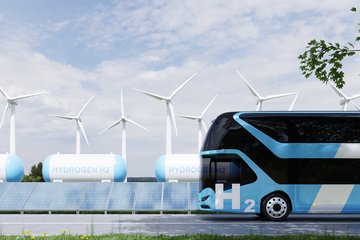All genres
301.
Thesis - PhD
Electrochemical dissolution characteristics of Zn, Mg, Al and ZnMg(Al) alloys. Dissertation, Ruhr-Universität Bochum, Bochum, Germany (2015)
302.
Thesis - PhD
From Microbially Induced Corrosion to Bioelectrical Energy Conversion - Electrochemical Characterization of Sulfate-Reducing Bacteria and Methanogenic Archaea. Dissertation, Fakultät für Chemie und Biochemie der Ruhr-Universität Bochum, Bochum, Germany (2014)
303.
Thesis - PhD
Combinatorial screening of fuel cell catalysts for the oxygen reduction reaction. Dissertation, Fakultät für Chemie und Biochemie, Ruhr-Universität Bochum, Bochum, Germany (2014)
304.
Thesis - PhD
Degradation phenomena and design principles for stable and active Pt/C fuel cell catalysts. Dissertation, Fakultät für Chemie und Biochemie, Ruhr-Universität Bochum, Bochum, Germany (2013)
305.
Report
Schlussbericht zum Vorhaben: Mechanistische Untersuchungen der elektrochemischen Sauerstoffentwicklung auf Modellelektroden - Stabilität der Elektroden, Natur der Oxide und Intermediate - Teilvorhaben des Clusterprojekts "Mangan". Technische Informationsbibliothek (TIB) Hannover, Hannover, Germany (2019), 32 pp.











